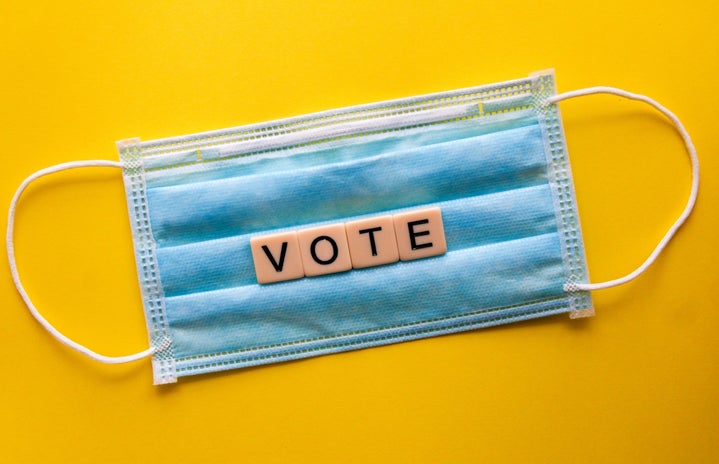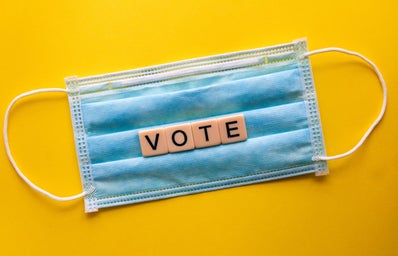Have you ever spoken with a close friend only to realize their comments have tiptoed into dangerous territory? Do they say phrases like, “Politics don’t affect my life”? Or the not-so-tried-and-true, “Politics just aren’t for me”? Perhaps they support their thinking by explaining that all politicians are corrupt, hence their work and efforts to get elected are void, null, zilch. Then, they conclude their argument by saying they won’t be voting this in this presidential election, since politics have little to do with their life.
Yikes.
If you have a friend who’s not voting — unfortunately — they’re not alone. In the 2016 election, the Pew Research Center reported that 33 percent of non-voters were ages 18 to 29. This non-voting perspective has been continuously perpetuated by fallacies in the American psyche, and hence the mindset of your friend as well. As we see in the following points, many of the supposed claims non-voters make when rationalizing their decision are simply not true. In a contentious election where ideological and moral differences are on the line, abstaining is not good enough. And in 2020, 21 states offer same day registration, which means there’s still time to do the right thing, even with mere hours to go. Here are four ways you might still convince a friend to go vote today.

- Appeal to their values
-
What gets them out of bed in the morning? Their close relationship with their family? A desire to pursue their dream career? The commitment they share with their partner? Chances are any or all of these things could be affected by the choices of public officials we vote for. Women fought for the right to vote and were granted it with the passage of the 19th amendment in 1919.
Voting for our elected officials has since had a tremendous impact on the lives of women everyday — namely The Lilly Ledbetter Fair Pay Restoration Act, which extended the timing to file pay complaints, so that women have a greater opportunity to fight for equal pay. Additionally, Supreme Court Cases like Roe v. Wade (1973) and Obergefell v. Hodges (2015) have had an innumerable part in shaping the lives of marginalized communities and continue to.
- Remind them that for many, voting is a matter of public record
-
Voting registration lists can be available by request, depending on the state you live in. Unlike private Instagram and goofy Snaps shared between friends, there is a record that people can potentially access showing whether or not someone participated in the political process. In our world, being politically correct and aware of worldly issues is increasingly more important. Not voting is becoming more taboo and hopefully, less popular. Young people who deem voting as meaningless and trivial now could regret their decision later.
- Reframe voting as a public duty
-
From my perspective, voting is the bare minimum of public service one can do to participate in our democracy. When orchestrated well by public officials and poll workers, the process is carried out efficiently (However, voter suppression in America – or the curtailment of voters’ rights and accessibility based on their income status, identity, and privilege — is an ethical wrong democracy needs to right ASAP).
This is part of the reason I support what is known as compulsory voting, which is when the law dictates citizens must vote. Mandatory voting is used by 13% of the world’s countries, according to the International Institute for Democracy and Electoral Assistance. United States citizens may have access to privileges and liberties other countries don’t have, which means we can’t squander them. We owe it to our republic to participate in the smallest thing you can possibly do (voting) so we can move this country forward.
- Vote together!
-
If your friend does appear open to the possibility of voting at this point, discuss how they can vote. This election is abnormal given COVID-19 and CDC measures to stop the spread. While voting in person isn’t ideal this season, it is one way to empower ourselves as citizens and show our representatives the strength of our collective voice. Vote.gov has an easy way to find out your voting options according to your state here. USAGov acts as a platform for the American government, making topics like voting more accessible and comprehensible. Learn more about voting in national and local elections here.
I have one final piece of advice in having this difficult conversation: while you should ultimately honor their choice, you can lead by example. In my experience, people who have difficulty making a decision will turn to their respected peers for how to proceed. By voting, you’re indirectly demonstrating to your friend how this action aligns with your personal philosophy and values. Go vote and show off your sticker with pride!


